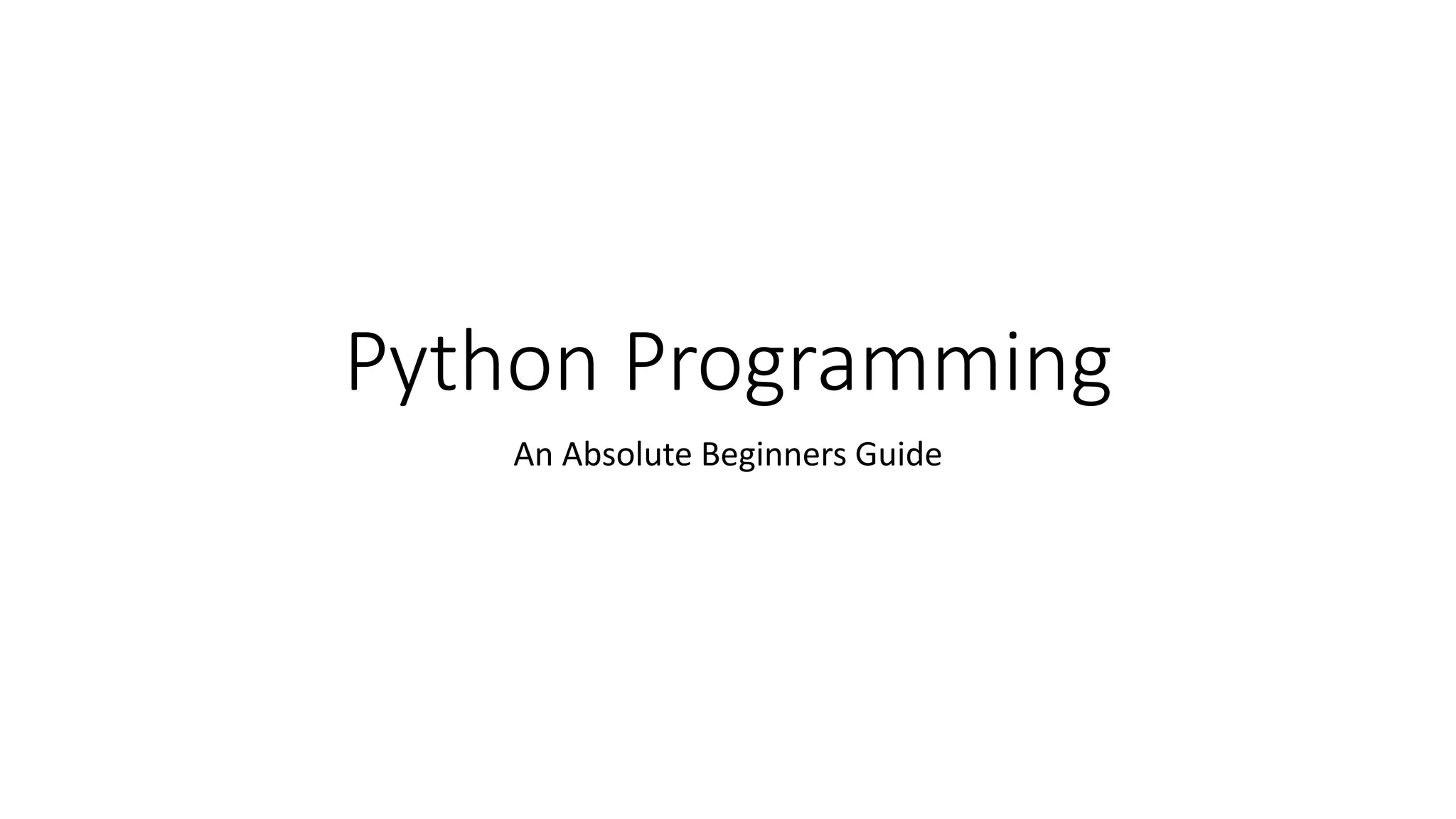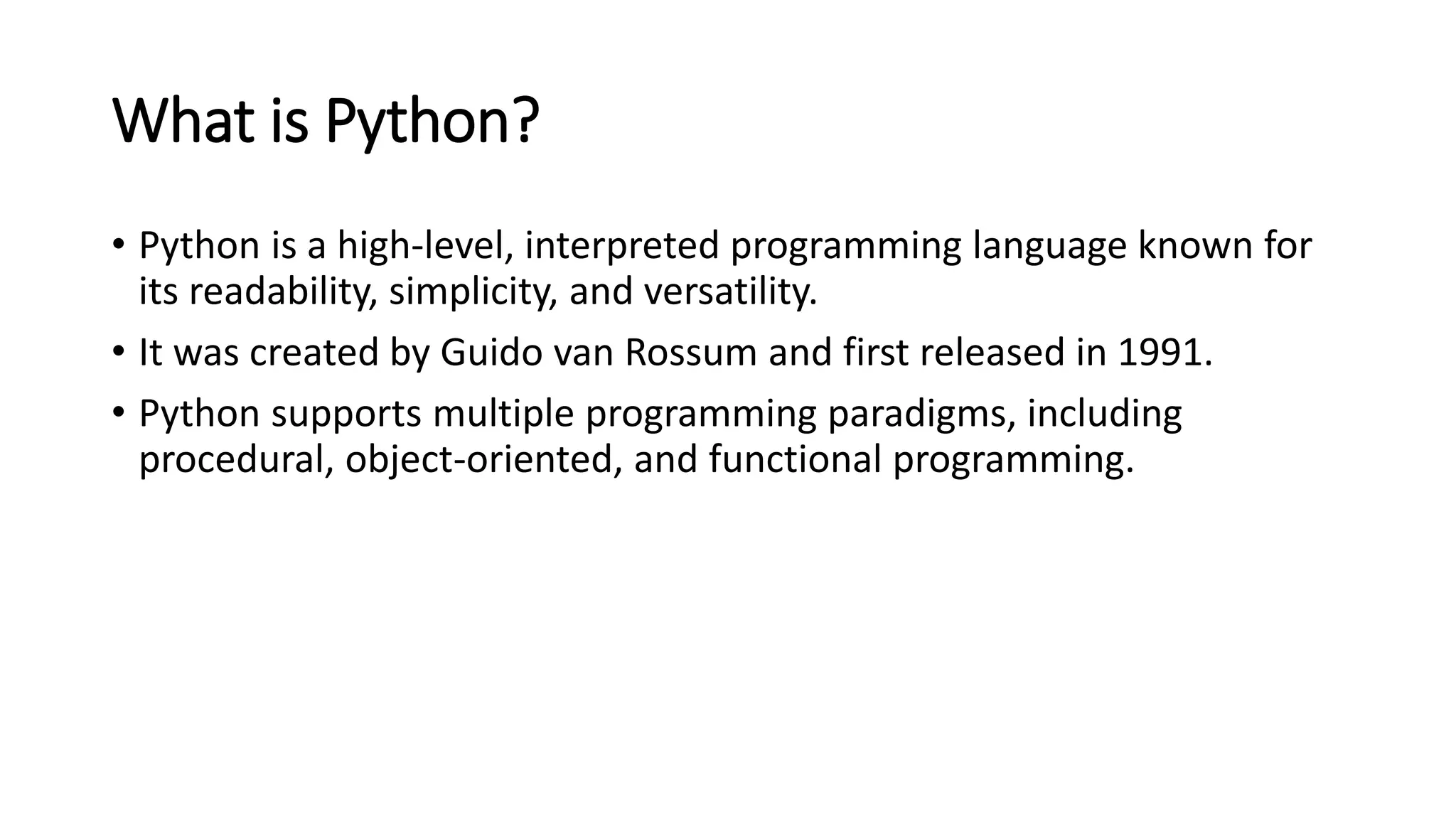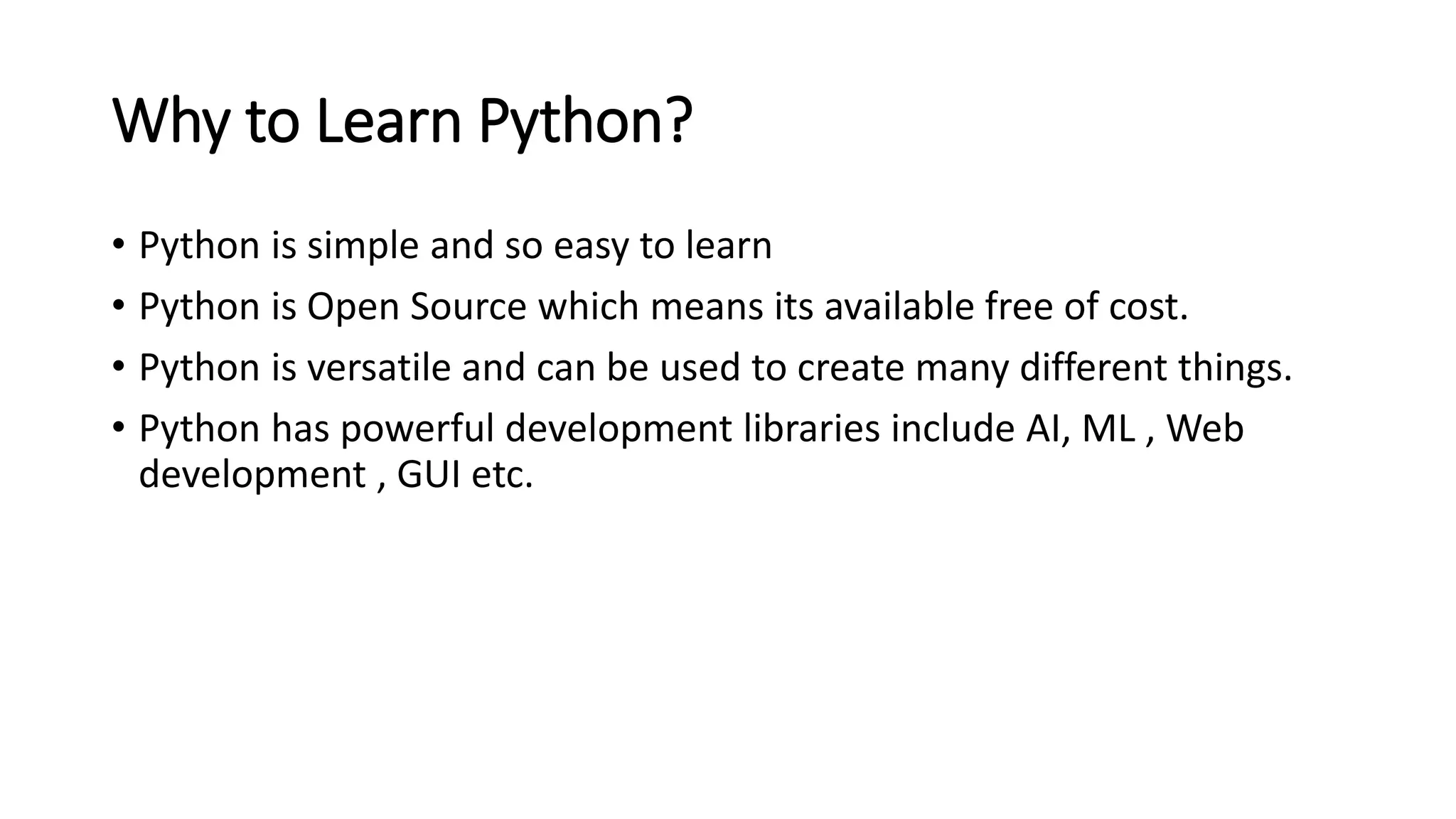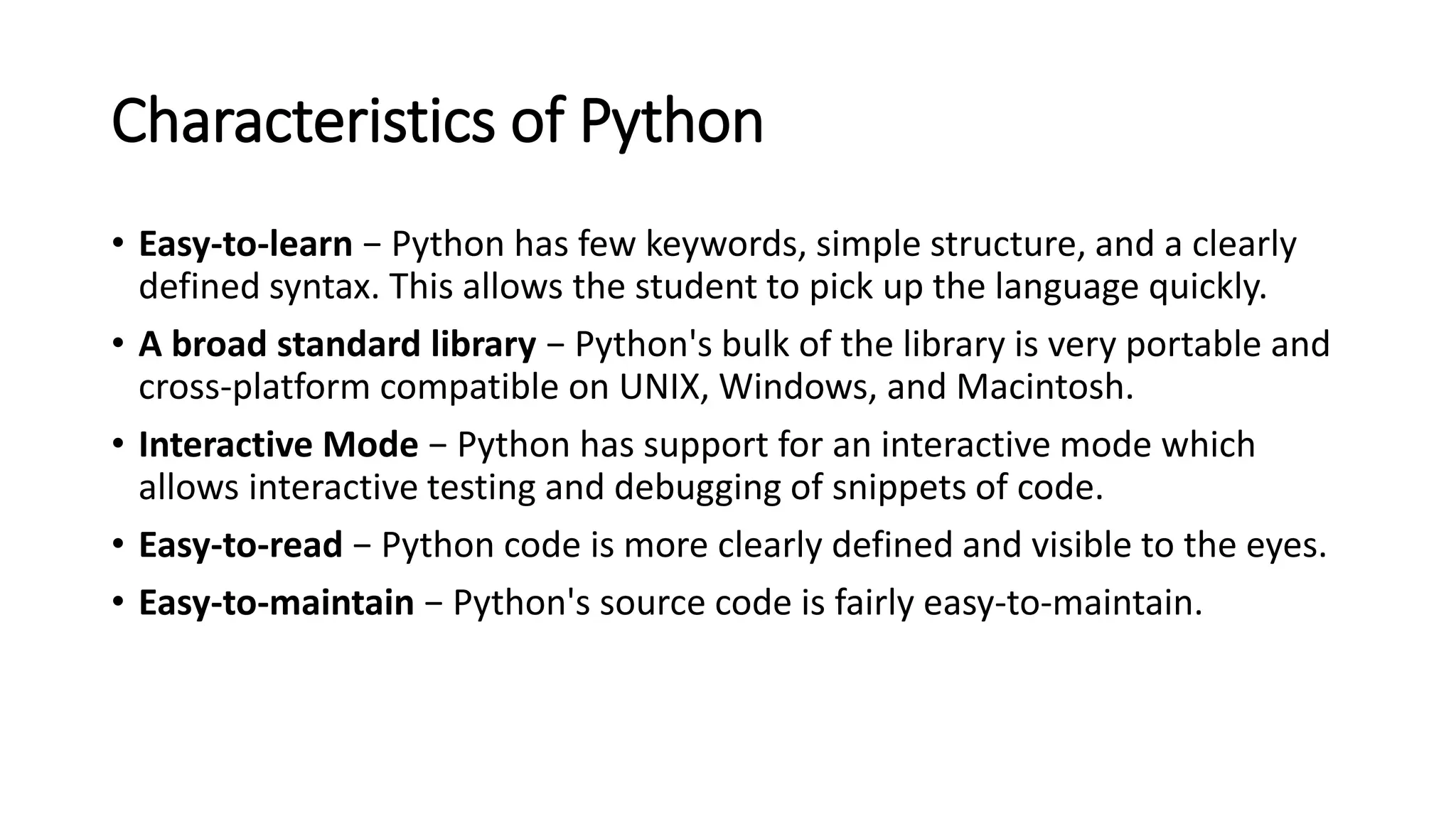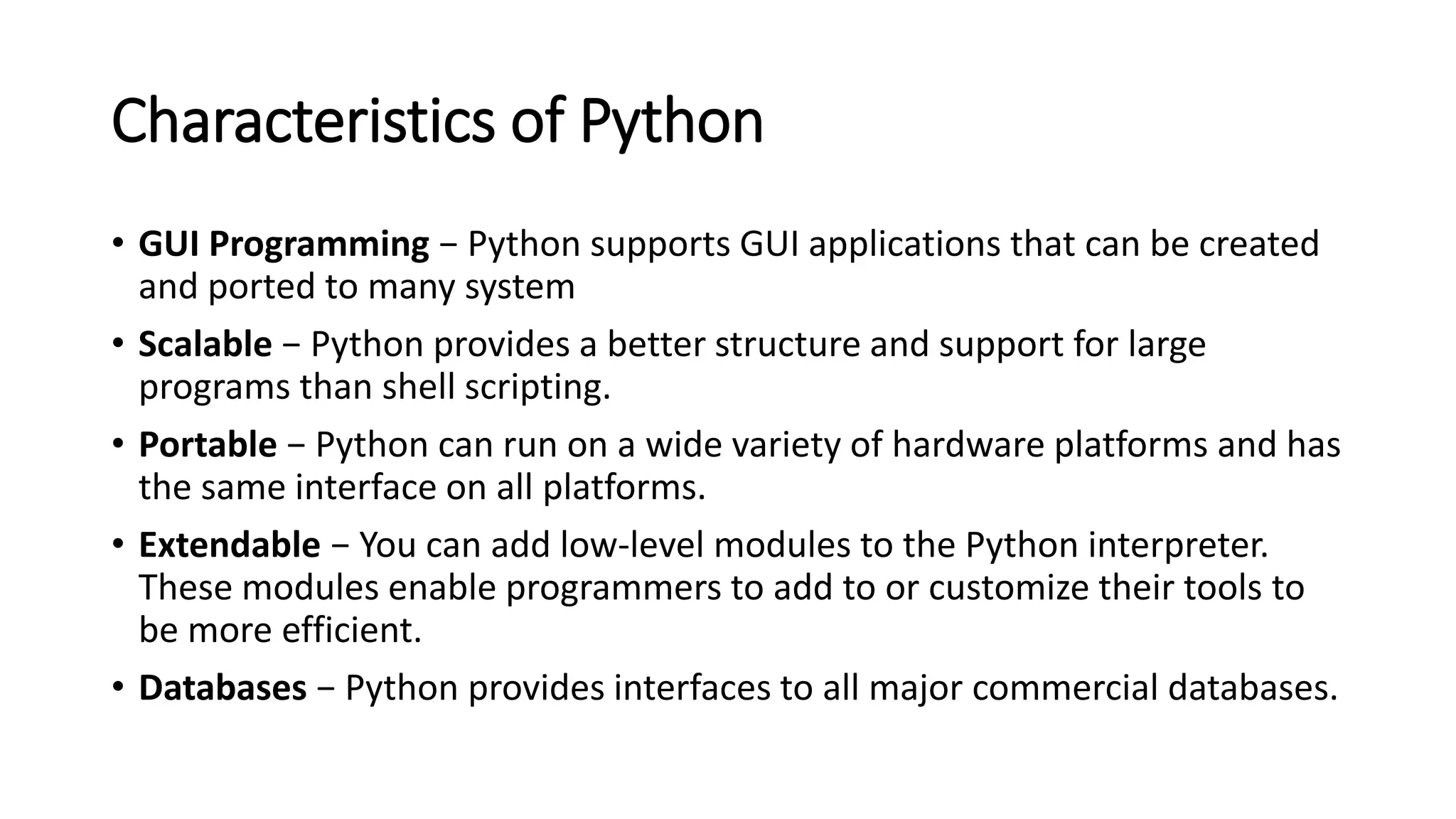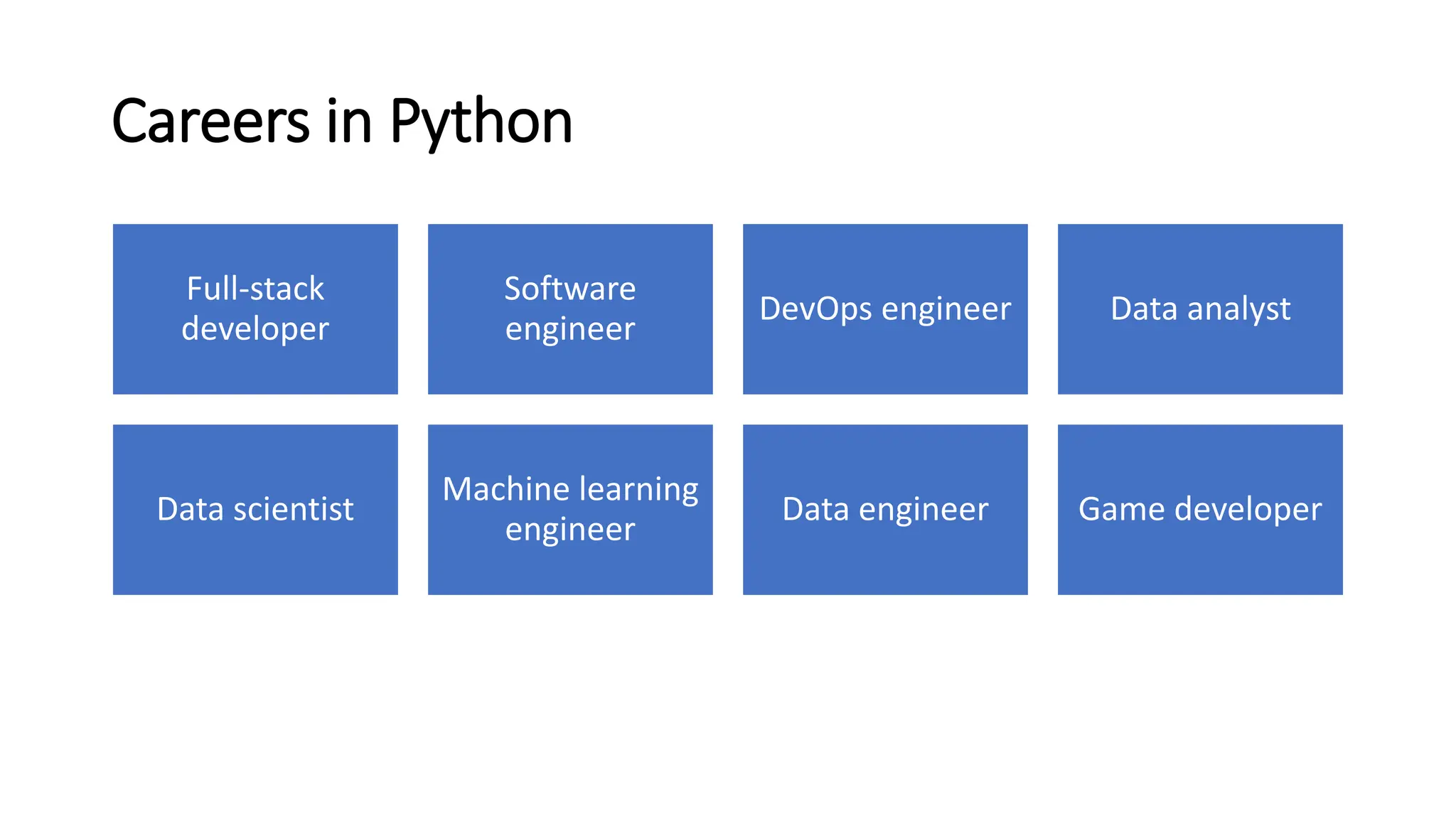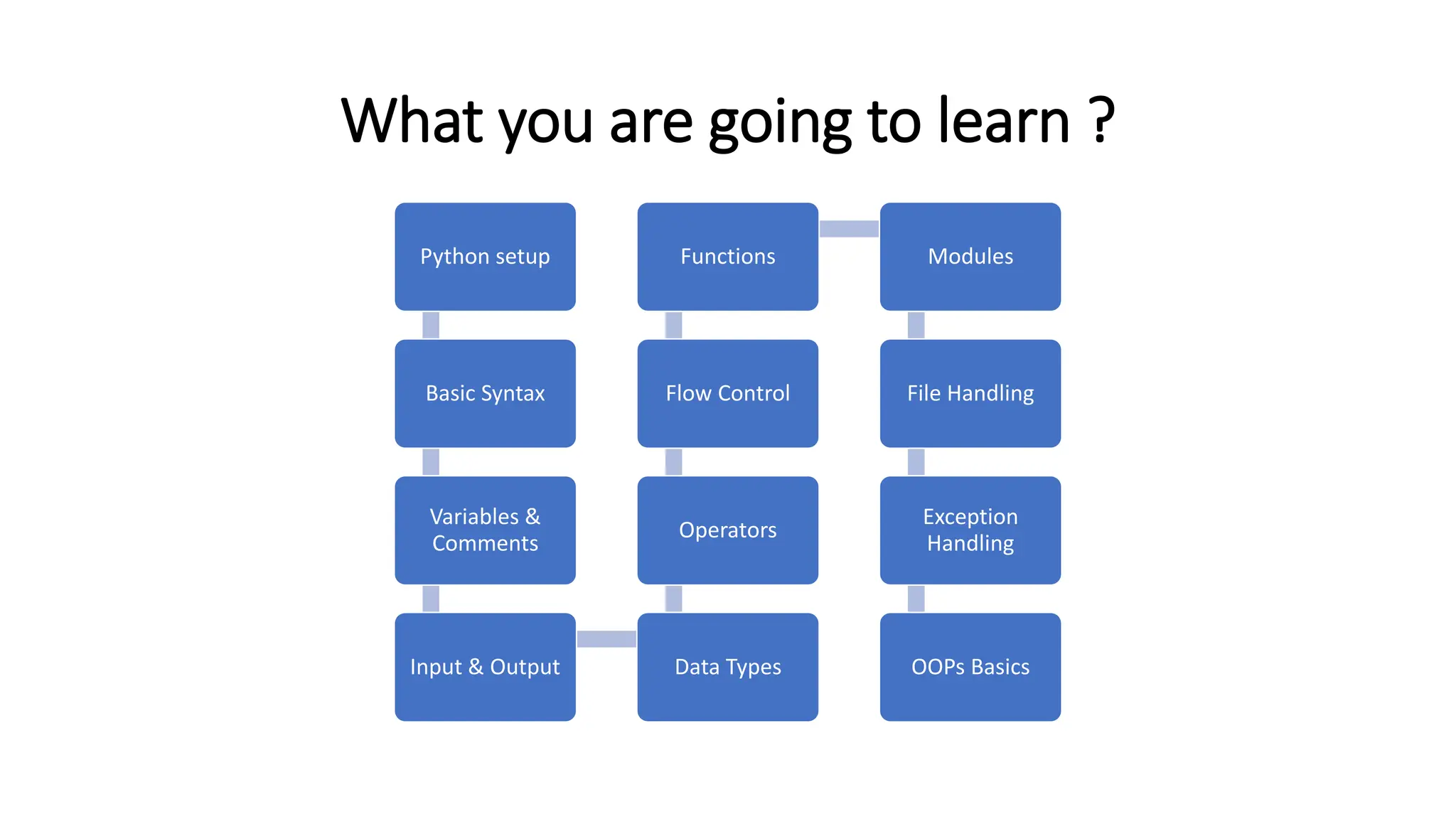Python is a high-level, interpreted programming language recognized for its readability and versatility, first released in 1991 by Guido van Rossum. It supports various programming paradigms and features a robust standard library, making it suitable for diverse applications, including web development and AI. Learning Python is beneficial as it is simple to pick up, open source, and offers numerous career opportunities in fields like software engineering and data science.
